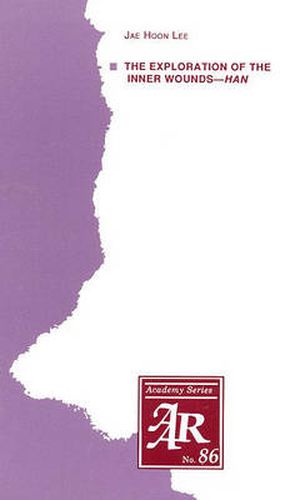Readings Newsletter
Become a Readings Member to make your shopping experience even easier.
Sign in or sign up for free!
You’re not far away from qualifying for FREE standard shipping within Australia
You’ve qualified for FREE standard shipping within Australia
The cart is loading…






The untranslatable Korean word han refers to a nexus of feelings including, but not restricted to: resentment, regret, resignation, agression, anxiety, loneliness, longing, sorrow, and emptiness. It even encompasses contradictory feelings such as hate and love. Jae Hoon Lee offers an exploration of han and its meaning in the indigenous Korean Minjung Christian Theology. Lee draws on recent studies by Korean scholars of folklore, Shamanism, literature, and psychology, the depth spychologies of Melanie Klein and Carl Jung, the personal han of three individuals (an ancient king, a contemporary poet, and a modern writer-activist), and the work of five Minjung theologians. Although han is a Korean concept and symbol woven in and out of Korean history, says Lee, it is a broad and deep image that can speak to all human beings about the mysterious source of both suffering and creativity.
$9.00 standard shipping within Australia
FREE standard shipping within Australia for orders over $100.00
Express & International shipping calculated at checkout
The untranslatable Korean word han refers to a nexus of feelings including, but not restricted to: resentment, regret, resignation, agression, anxiety, loneliness, longing, sorrow, and emptiness. It even encompasses contradictory feelings such as hate and love. Jae Hoon Lee offers an exploration of han and its meaning in the indigenous Korean Minjung Christian Theology. Lee draws on recent studies by Korean scholars of folklore, Shamanism, literature, and psychology, the depth spychologies of Melanie Klein and Carl Jung, the personal han of three individuals (an ancient king, a contemporary poet, and a modern writer-activist), and the work of five Minjung theologians. Although han is a Korean concept and symbol woven in and out of Korean history, says Lee, it is a broad and deep image that can speak to all human beings about the mysterious source of both suffering and creativity.